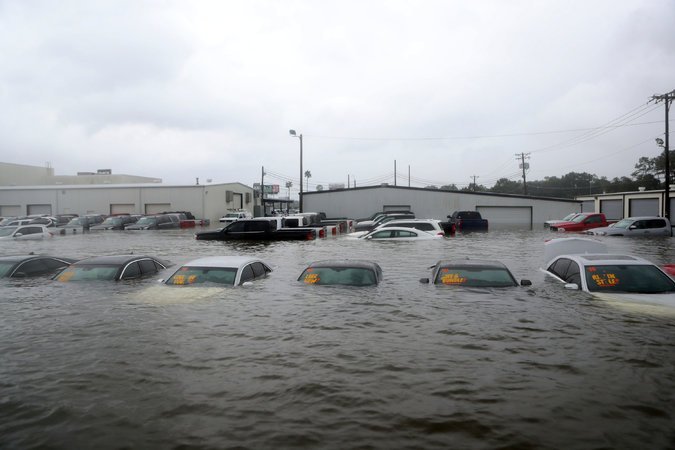Collecting insurance benefits for a hurricane-damaged car

Hurricane Harvey (2017) damaged as many as 500,000 vehicles in the Houston area alone, according to preliminary estimates. This number is much higher than Superstorm Sandy (2013) or Hurricane Katrina (2005). Hurricane Irma (2017) damaged an additional 1 million vehicles across the southeast, including Florida where it hit hardest.
If your car was damaged in a hurricane, take photos and dry it out as soon as possible. While freshwater is less problematic than salt/seawater and raises the potential for a successful salvage of the water-damaged vehicle, it is challenging to address every consequence of the harm. It is common for repair issues to crop up months, sometimes years, after water exposure. A single post-flood fluid change is never sufficient. The best strategy requires follow-up checks of the affected vehicle systems and regular flushing and fluid changes as well.
- Starting your car may be dangerous or cause more problems. Get a trusted mechanic to examine:
- The oil dipstick—Water droplets found here could be indicators that your engine flooded and the cylinders will need replacing.
- Engine cylinders—If they’re damaged, they’ll have to be replaced, and corrosion from flooding will need to be dealt with.
- There could be water in your fuel tank. Siphon out a bit of gas, and see if there’s any water mixed in (it should naturally separate from the fuel). If there is, empty the tank.
- Use caution when turning on the radio, testing windows, or checking any other electronic components of the vehicle.
Tips to help you collect insurance benefits for repairs/replacement:
- If you have comprehensive coverage on your vehicle, flood damage is covered;
- Find pictures of your car before the storm;
- Speak UP to get a fair insurance settlement;
- An insurance claim is a business negotiation. Get an independent opinion on the value of your car before you settle;
- If you don’t agree with the adjuster’s decision on the value or whether it’s a total loss, gather the information that supports your view. Depending on the extent of the damage and the value of your car, you may want to get the car repaired rather than declared a total loss. Or, it may be to your benefit to have it declared a total loss. Either way, do your research;
- If you have rental car coverage, arrange a rental while you settle your claim;
- You should be able to choose the shop where your car will be repaired, even if it’s not one in your insurer’s network;
- Before you buy a used car, be extra careful to avoid one that’s flood-damaged. If you’ve found a car you want to buy, enter its Vehicle Identification Number (VIN) in this free search box, and check its history via:
– Guidance from the Insurance Information Institute on valuing your car
– For help with your claim, contact the Texas Department of Insurance or the Florida Office of Insurance Regulation.
– Visit United Policyholders’ State by State Help Library for information specific to your state
